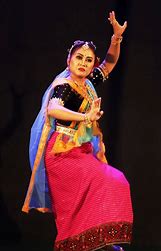Arun Sarma (1931–2017) stands as a towering figure in Assamese literature and theatre, renowned for his innovative plays and evocative novels that delve deep into the socio-cultural fabric of Assam. His contributions have not only enriched Assamese literature but have also earned him national recognition, including the prestigious Sahitya Akademi Award and the Sangeet Natak Akademi Award.(DBpedia Association, Rupa Publications)
Early Life and Education
Born on November 3, 1931, in Dibrugarh, Assam, Arun Sarma was the son of Tilak Chandra Sarma, the editor of The Times of Assam. In 1935, the family relocated to Halemguri near the tea hamlet of Halem, where his father, inspired by Gandhian ideals, took up farming and social work. Sarma completed his schooling at Tezpur High School and graduated with honors in Education from Cotton College, Guwahati, in 1954. It was during his college years that he began writing drama and poetry, laying the foundation for his illustrious literary career. (The Arunachal Times, Wikipedia)
Literary Career
Playwriting
Arun Sarma is celebrated for his unconventional plays that broke away from traditional Assamese theatre. His works often incorporated elements of social realism and psychological depth, reflecting the complexities of Assamese society. Notable plays include Sri Nibaran Bhattacharya, Urukha Panja, Jinti, Parashuram, Ahar, Purus, and Kukurnechia Manuh. These plays are characterized by their innovative narratives and profound exploration of human emotions. (The Arunachal Times, IJCRT)
Novels
Beyond theatre, Sarma authored over six novels that vividly portray Assamese life and ethos. His novel Ashirbadar Rong (The Hues of Blessing) earned him the Sahitya Akademi Award in 1998. This work is acclaimed for its sensitive depiction of social issues and its lyrical prose. (DBpedia Association)
Radio and Broadcasting
Sarma’s talents extended to radio broadcasting, where he served as the Director of All India Radio’s North Eastern Service. His radio documentaries received international acclaim, winning the Japan Prize International for All Buds to Bloom (1980), the ABU Award for Caution: Danger Ahead (1982), and a commendation at Prix Futura Berlin for All Lips to Smile (1983). (Rupa Publications, The Assam Tribune)
Awards and Recognition
Arun Sarma’s contributions have been recognized with numerous awards:
- Sahitya Akademi Award (1998): For his novel Ashirbadar Rong. (DBpedia Association)
- Sangeet Natak Akademi Award (2003): For his outstanding contribution to Indian theatre. (Wikipedia)
- Padma Shri (2010): One of India’s highest civilian honors, awarded for his contributions to literature and education.
- Assam Valley Literary Award (2005): Recognizing his significant impact on Assamese literature. (The Arunachal Times)
- Asam Sahitya Sabha’s Best Playwright Award: Received for two consecutive years, highlighting his prominence in Assamese theatre. (Exotic India Art)
Legacy
Arun Sarma’s legacy is deeply embedded in the cultural and literary landscape of Assam. His works continue to inspire new generations of writers and playwrights. By blending traditional themes with modernist approaches, he created a unique narrative style that resonates with readers and audiences alike. His contributions have not only elevated Assamese literature but have also brought it to the national forefront.
Conclusion
Arun Sarma’s multifaceted career as a playwright, novelist, and broadcaster showcases his profound understanding of Assamese society and his commitment to portraying its complexities with authenticity and empathy. His accolades, including the Sahitya Akademi Award, Sangeet Natak Akademi Award, and Padma Shri, are testaments to his enduring impact on Indian literature and theatre. As we reflect on his life and works, Arun Sarma remains a beacon of literary excellence and cultural pride for Assam and India.(The Assam Tribune)


